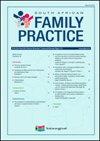临床助理人员对精神疾病的态度、提供服务的兴趣和进修偏好
IF 1.2
Q2 MEDICINE, GENERAL & INTERNAL
引用次数: 0
摘要
背景:鉴于精神疾病造成的疾病负担,需要非专业的卫生专业人员提供精神健康服务。本研究旨在探讨临床助理人员对精神病患者的态度,以及他们对精神健康工作和额外精神健康培训的兴趣:研究采用横断面研究设计。研究对象包括南非的临床医生。该量表满分为 96 分,分数越高,表明对精神疾病的态度越轻蔑。多变量线性回归用于确定与 MICA-4 评分相关的因素:结果:在完成全部 16 个问题的 166 名参与者中,MICA-4 的平均得分为 37.55(标准偏差为 7.33)。在多变量分析中,与 MICA-4 得分明显较低相关的因素是年龄在 25-29 岁之间,以及本科学位中包含心理健康轮换课程。超过 80% 的参与者(140/167,83.8%)表示对心理健康工作感兴趣。三分之二的参与者(111/167,66.5%)表示对心理健康专业感兴趣:结论:临床助理人员的 MICA-4 平均得分表明,他们对精神病患者的成见程度较低。结论:临床助理医师的 MICA-4 平均得分表明,他们对精神病患者的成见程度较低,此外,他们对精神健康方面的工作和培训也很感兴趣:贡献:培训计划应注意到心理健康轮转对心理健康患者积极态度的促进作用。临床助理对精神疾病的态度以及他们对精神健康工作和培训的兴趣表明,他们可以在精神健康服务中得到更广泛的利用。本文章由计算机程序翻译,如有差异,请以英文原文为准。
Mental illness attitudes, service provision interest and further training preferences of clinical associates
Background: Non-specialist health professionals are required to provide mental health services given the burden of disease due to mental illness. The study aimed to explore the attitudes of clinical associates towards those with mental illness as well as their interest in mental health work and additional mental health training.Methods: A cross-sectional study design was utilised. The study population consisted of clinical associates based in South Africa. An electronic questionnaire was developed that incorporated the 16-item Mental Illness Clinicians’ Attitudes version 4 scale (MICA-4), which is scored out of 96 with higher scores indicating more stigmatising attitudes. Multivariate linear regression was used to determine factors associated with the MICA-4 score.Results: The mean MICA-4 score for the 166 participants who completed all 16 questions was 37.55 (standard deviation 7.33). In multivariate analysis, the factors associated with significantly lower MICA-4 scores were falling in the 25- to 29-year-old age category and indicating that a mental health rotation formed part of the undergraduate degree. More than 80% of the participants (140/167, 83.8%) indicated an interest in mental health work. Two-thirds of the participants (111/167, 66.5%) indicated an interest in a specialisation in mental health.Conclusion: The mean MICA-4 score recorded for clinical associates indicates low stigma levels towards those with mental illness. Additionally, there is significant interest in working and training in mental health.Contribution: Training programmes should take note of the contribution of a mental health rotation to a positive attitude to mental health patients. Clinical associates’ attitudes towards mental illness together with their interest in working and training in mental health suggest that they could be more widely utilised in mental health service provision.
求助全文
通过发布文献求助,成功后即可免费获取论文全文。
去求助
来源期刊

South African Family Practice
MEDICINE, GENERAL & INTERNAL-
CiteScore
1.50
自引率
20.00%
发文量
79
审稿时长
25 weeks
期刊介绍:
South African Family Practice (SAFP) is a peer-reviewed scientific journal, which strives to provide primary care physicians and researchers with a broad range of scholarly work in the disciplines of Family Medicine, Primary Health Care, Rural Medicine, District Health and other related fields. SAFP publishes original research, clinical reviews, and pertinent commentary that advance the knowledge base of these disciplines. The content of SAFP is designed to reflect and support further development of the broad basis of these disciplines through original research and critical review of evidence in important clinical areas; as well as to provide practitioners with continuing professional development material.
 求助内容:
求助内容: 应助结果提醒方式:
应助结果提醒方式:


